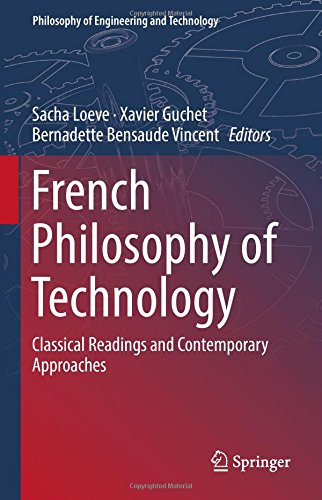

Most ebook files are in PDF format, so you can easily read them using various software such as Foxit Reader or directly on the Google Chrome browser.
Some ebook files are released by publishers in other formats such as .awz, .mobi, .epub, .fb2, etc. You may need to install specific software to read these formats on mobile/PC, such as Calibre.
Please read the tutorial at this link: https://ebookbell.com/faq
We offer FREE conversion to the popular formats you request; however, this may take some time. Therefore, right after payment, please email us, and we will try to provide the service as quickly as possible.
For some exceptional file formats or broken links (if any), please refrain from opening any disputes. Instead, email us first, and we will try to assist within a maximum of 6 hours.
EbookBell Team

5.0
108 reviewsOffering an overall insight into the French tradition of philosophy of technology, this volume is meant to make French-speaking contributions more accessible to the international philosophical community. The first section, “Negotiating a Cultural Heritage,” presents a number of leading 20th century philosophical figures (from Bergson and Canguilhem to Simondon, Dagognet or Ellul) and intellectual movements (from Personalism to French Cybernetics and political ecology) that help shape philosophy of technology in the Francophone area, and feed into contemporary debates (ecology of technology, politics of technology, game studies). The second section, “Coining and Reconfiguring Technoscience,” traces the genealogy of this controversial concept and discusses its meanings and relevance. A third section, “Revisiting Anthropological Categories,” focuses on the relationships of technology with the natural and the human worlds from various perspectives that include anthropotechnology, Anthropocene, technological and vital norms and temporalities. The final section, “Innovating in Ethics, Design and Aesthetics,” brings together contributions that draw on various French traditions to afford fresh insights on ethics of technology, philosophy of design, techno-aesthetics and digital studies. The contributions in this volume are vivid and rich in original approaches that can spur exchanges and debates with other philosophical traditions.